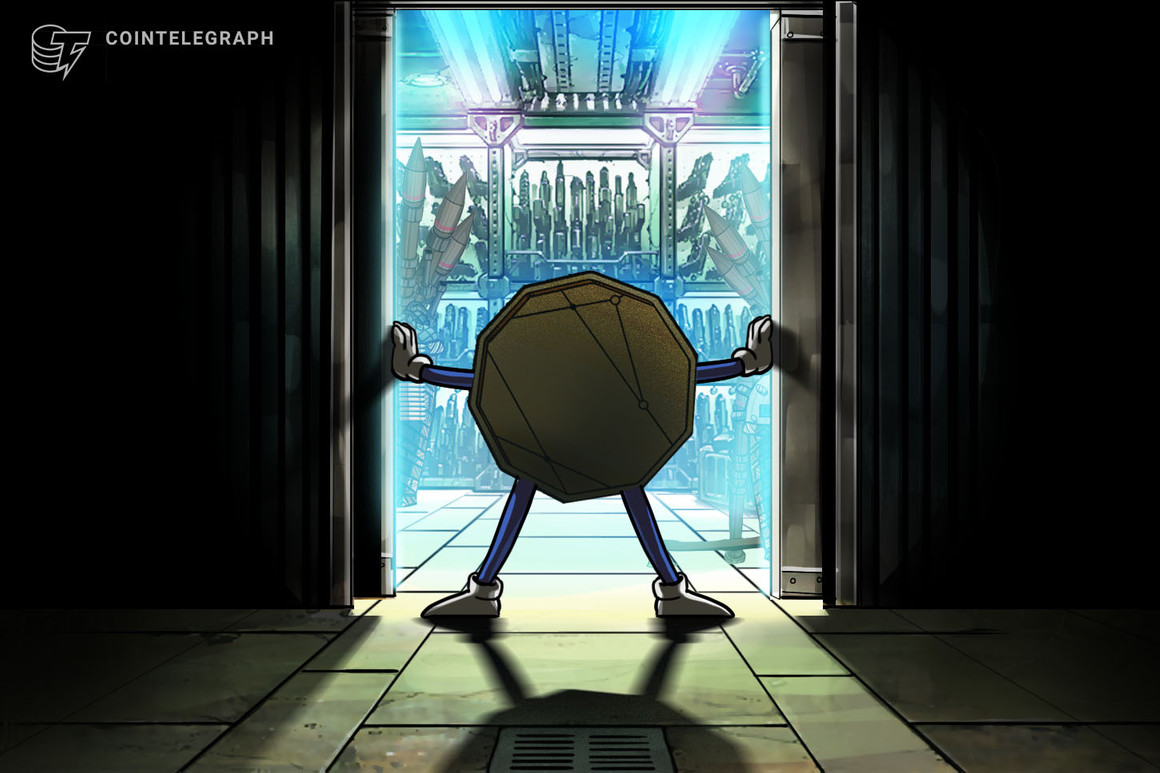The Russia-Ukraine conflict has tested the capabilities of crypto in a real-world conflict where sanctions and inventive blockchain crowdfunding model

The Russia-Ukraine conflict has tested the capabilities of crypto in a real-world conflict where sanctions and inventive blockchain crowdfunding models abound.
The war, which is drawing into its ninth month, has uncovered a raft of blockchain benefits, such as the capacity to support humanitarian endeavors. It has also revealed how much control national authorities can exert over crypto networks.
Vadym Synegin, co-founder at IT and crypto solutions provider Tecor, told Cointelegraph that cryptocurrencies have a unique advantage in situations where there is an increased risk of money transfer interruptions due to the centralization of conventional systems.
“With most markets controlled by centralized authority figures that can easily buckle under the political tensions, the crypto markets remain more or less decentralized, meaning that their operational efficiencies during periods of crisis are further enhanced,” he said.
So, what other aspects has the Russia-Ukraine conflict revealed about crypto?
Crypto donations for humanitarian aid
The Russia-Ukraine conflict has shown that cryptocurrencies can be used for fundraising in military conflicts. Notably, the Ukrainian government began accepting crypto donations at the beginning of the year in a bid to enhance donor inclusivity, and this led to the creation of the Crypto Fund of Ukraine.
The nation’s Ministry of Digital Transformation is currently in charge of the fund, which was set up in conjunction with Kuna, FTX and Everstake to buttress Ukraine’s humanitarian aid and military programs. The project has enabled the Ukrainian government to raise over $100 million in cryptocurrency donations so far.
That said, some pro-Ukraine crypto fundraising groups have turned to novel crypto instruments such as decentralized autonomous organizations (DAOs) to raise funds for the nation.
The UkraineDAO, which is among the most prominent of the lot, was created in February for the sole purpose of providing monetary support to Ukrainian soldiers. The project’s co-founders include Russian critic Nadya Tolokonnikova, who is also a founding member of the Pussy Riot feminist protest group. Other UkraineDAO founding members include PleasrDAO and Trippy Labs, a generative NFT studio. The project has raised over $8 million so far.
Among the most notable successes of the UkraineDAO was the recent sale of a nonfungible token (NFT) of the Ukrainian flag that fetched just over $6 million in Ether (ETH). It is currently ranked among the top 20 most expensive NFTs of all time.
Recent: Does the IMF have a vendetta against cryptocurrencies?
Cointelegraph had the chance to speak with Kayla Kroot, the co-founder of the Koii Network, regarding the current use of crypto in the Ukraine situation. Her company is involved in the development of novel blockchain models, including Web3.
According to the executive, cryptocurrencies have enabled citizens caught up in the war to maintain access to their money during these trying times:
“Cryptocurrency was developed to help global citizens maintain control of their money.”
Kroot also noted the increased use of digital coins by humanitarian groups operating in the nation. “Organizations such as World Central Kitchen performed crowdfunding campaigns. In WCK’s case, this involved accepting donations in ETH. These funds were dispersed with fewer restrictions and oversight, allowing money to more easily get to the hands of those who needed it most,” she added.
Scammers take advantage of well-wishers
While crypto donations have been helpful in furthering the Ukrainian cause, some malicious entities have blighted noble efforts by well-wishers.
Some scammer syndicates have attempted to beguile donors by pretending to be representatives of authorized crypto exchanges involved in Ukraine fundraising efforts. Cybersecurity experts estimate that millions of deceptive emails employing the tactic have been sent out so far.
Some of the emails contain messages of distress from cybercriminals purporting to be Ukrainians in dire need of financial aid.
The influx of such messages subverts the cause of helping Ukrainians by making it harder for the real victims to get the help they need.
There have also been reports of scam messages being spread on social media platforms. At this juncture, it is important to note that well-wishers should only donate their crypto via official Ukrainian government channels in order to avoid possible scams.
Besides fraudulent posts appearing on social media, scam messages soliciting crypto are also popping up on the dark web.
The dark web is an overlay internet network made up of unindexed websites that are invisible to standard browsers and search engines and can only be accessed using special browsers.
The dark web is intentionally hidden from regular users for a good reason. It harbors all manner of illegal activity that includes black markets for illegal drugs and guns. Blackhats also use the dark web to sell stolen personal…
cointelegraph.com
